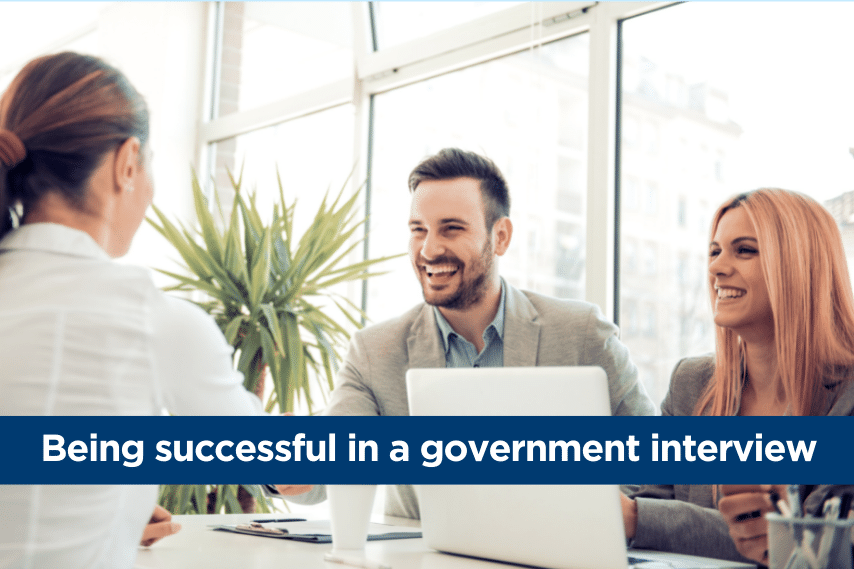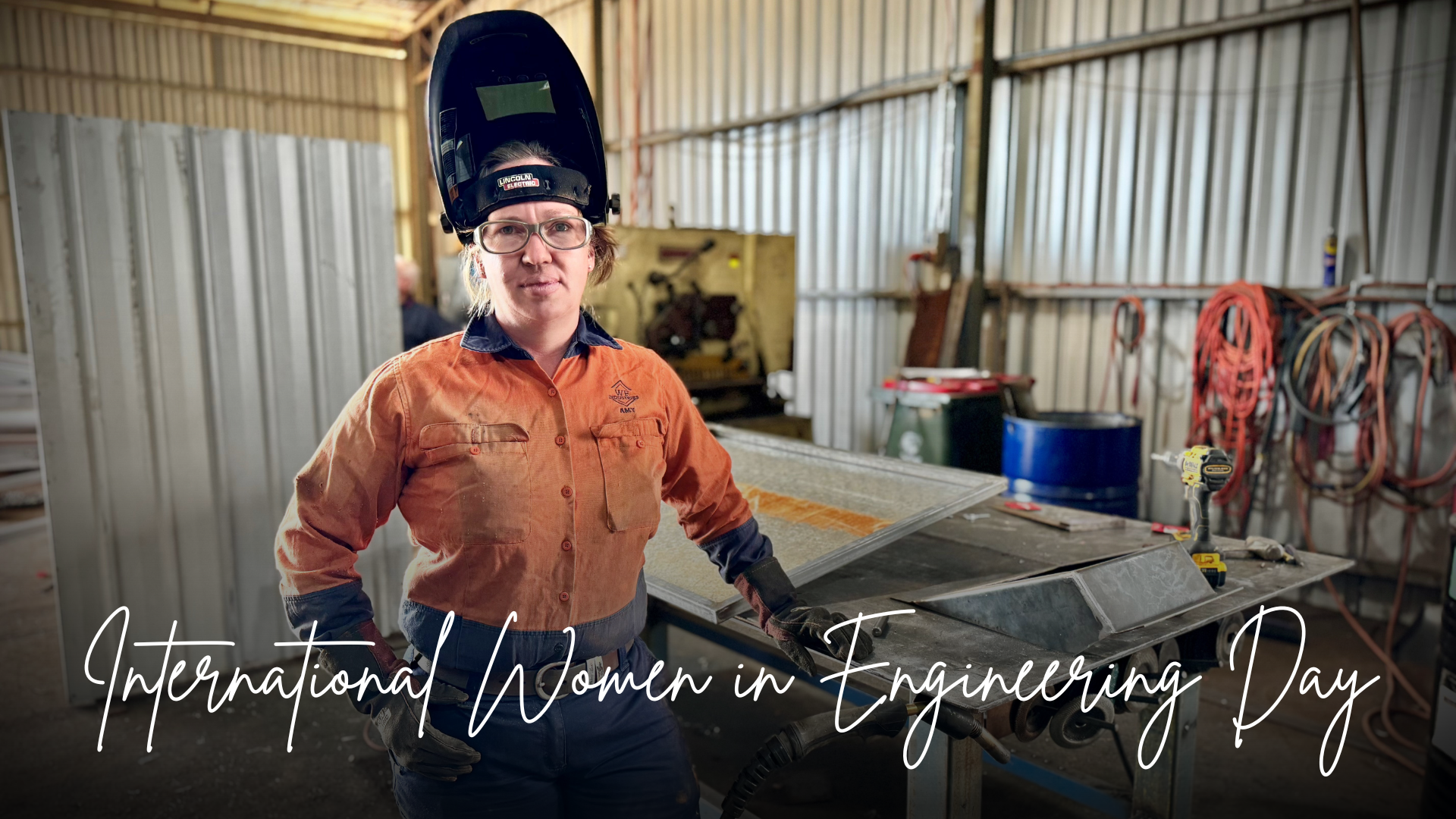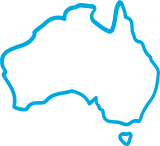
Job interviews with government organisations can be very different from job interviews in the private sector. For a start, recruitment processes in government are aimed at finding the right candidate in a way that is fair and equitable to everyone who applies for a job. Secondly, recruitment decisions in government organisations must be transparent and withstand potential scrutiny.
As a result, each interview follows a specific process, making government interviews more formal than job interviews for non-government organisations. This process can mean that candidates need to put more thought into how they are going to approach a government job interview. Here are Skillset’s top tips for making your next government job interview a success:
1) Improve your understanding of the government organisation
If you have been contacted for a job interview with a government organisation, it is essential that you prepare as much as you can. Therefore, go to the website of the organisation and learn about the senior management and its activities. If they have key policies on their website which may be relevant to the role you have applied for, make sure you read these. Also, follow the organisation on social media so you can learn what it is significant to the organisation and are up to date with any recent events or achievements. It may also be valuable researching the organisation in the mainstream media so you are aware of any news or developments which may be affecting the organisation presently.
2) Know the job inside out
Before you attend the job interview, go back to the Position Description for the role. Make sure you have a thorough understanding of the main parts of the Position Description, including the key accountabilities and key challenges for the role. Many public sector Position Descriptions also provide a list of key relationships the role will work with and details of the other positions the role reports to, as well as role’s direct reports. It is important to be across this information so you can provide relevant and well-informed responses to any questions you might be asked during the interview.
Additionally, if you are applying for a NSW Government job, it is necessary to be familiar with the NSW Public Sector Capability Framework which details the knowledge, skills and abilities needed for each role. It is possible that you may have referred to these in your covering letter, however it is also a good idea to know these capabilities in preparation for your interview. This information can be found in all NSW Government position descriptions.
3) Think about the types of questions you will be asked & practice responses
Most government interviews include some kind of assessment. If you have secured an interview, you will be told about the format and type of assessment when provided details about the interview. These assessments range from being asked questions in an interview through to cognitive ability tests and work sample tests.
In most government job interviews, candidates are asked a set of behavioural questions and all candidates receive the same questions. Behavioural questions ask candidates to look back on their own experience to explain how they approached a particular situation or problem. These questions can usually be identified by phrases which begin with the following:
“Tell me about a time when …”
“How did you do …”
“Give me an example where …”
To prepare for these type of questions before the interview, develop a list of possible behavioural questions you might be asked about the role. If you are unsure what these could be, google some standard behavioural questions that are asked in interviews. From this, develop some responses and take some time to practice these prior to the interview. Ask friends and family to help with practicing your answers to questions. If you are preparing by yourself, think about recording your responses on your phone and then playing them back to assess your performance, or rehearsing your answers in front of the mirror.
4) Consider your response strategy
For many government job interviews, you will be provided with the questions you will be asked at the very beginning of the interview, then given some time to prepare your responses before the formal interview begins. You will usually be given 10 – 15 minutes to prepare your answers. In these instances, make sure you use your time effectively and approach the task like you would an exam at school. The strategy below might help:
- Divide the amount of time you have by the number of questions (so 15 minutes divided by 3 questions equals 5 minutes per question). This is the amount of time you should devote to preparing an answer to each question.
- Read each question carefully and underline the key words.
- Write down your response to each question in an abbreviated format. Remember this should just be a series of pointers to help you respond to each question. When you have finished, read out your points with the question to make sure you have all the elements of a comprehensive answer.
- Refer to these pointers (and even cross them off) as you provide answers to each question during the job interview.
5) Come with some questions to ask
Towards the end of the interview, it is likely you will be asked if you have any questions about the role. Your answer should be ‘yes’.
A job interview not only gives the recruiter/employer a chance to meet you and decide whether you are the right candidate for the job, but is also an opportunity for you to find out if the job is the correct one for you. As a result, you should always have some prepared questions to ask during the interview – doing this will also allow you to demonstrate your understanding of the role/organisation and your interest in winning the job. If you are unsure what sort of questions to ask, go back to the Position Description and the organisation’s website to determine if you have any gaps in your understanding of the role/organisation. In lieu of this, try these questions:
- Can you tell me a little bit more about the work culture and the team I will be working with?
- What does the company look for in employees?
- What do people enjoy most about working here?
Finally, good luck with your government job interview! If you aren’t successful with your interview on this occasion, remember that obtaining feedback is one of the advantages of government recruitment processes. Obtaining feedback on your performance is important as it will help you make improvements for when the next opportunity appears!
You may also like

International Women in Engineering Day
Meet Amy Shepard – Welding & Fabrication Apprentice […]
Building your confidence when applying for jobs after a career break
If you haven’t been in the workforce for […]
 Skillset would like to acknowledge and pay respect to the traditional custodians of the lands on which we work.
Skillset would like to acknowledge and pay respect to the traditional custodians of the lands on which we work.We are honoured to be on the ancestral lands of those whose cultures are among the oldest living cultures in human history. We pay respect to the Elders, past, present and to the younger generation of the community who will be the future leaders in years to come.

